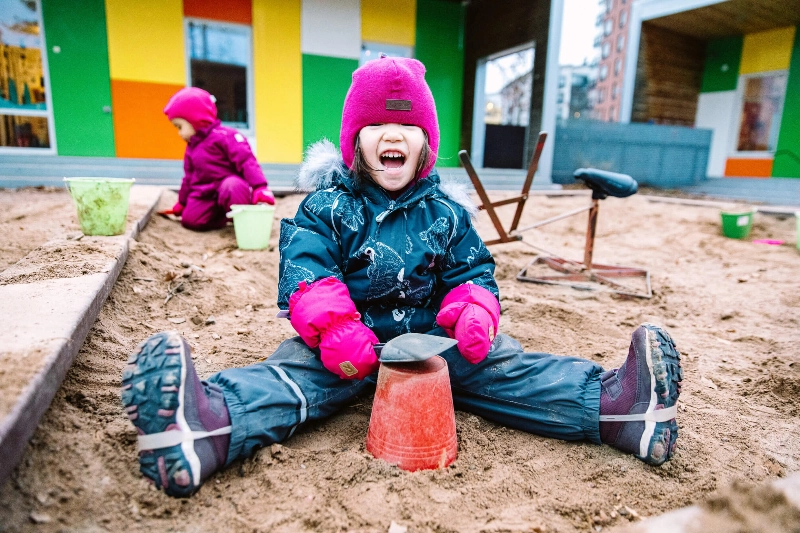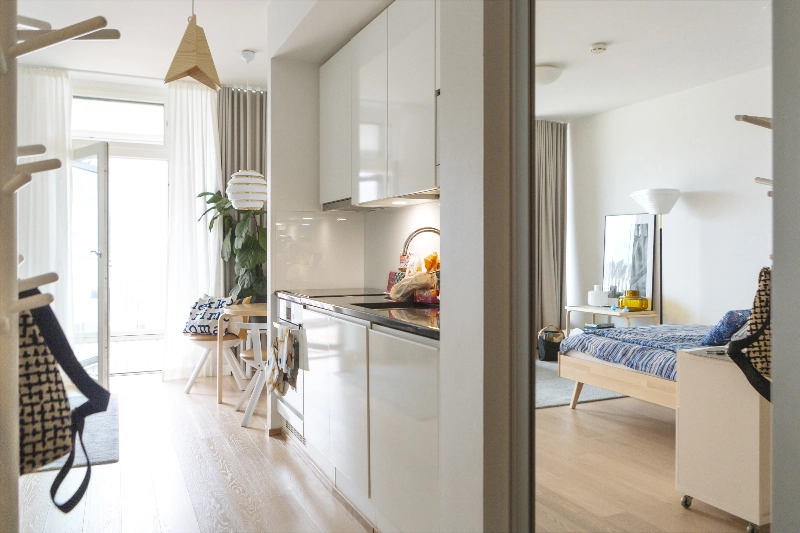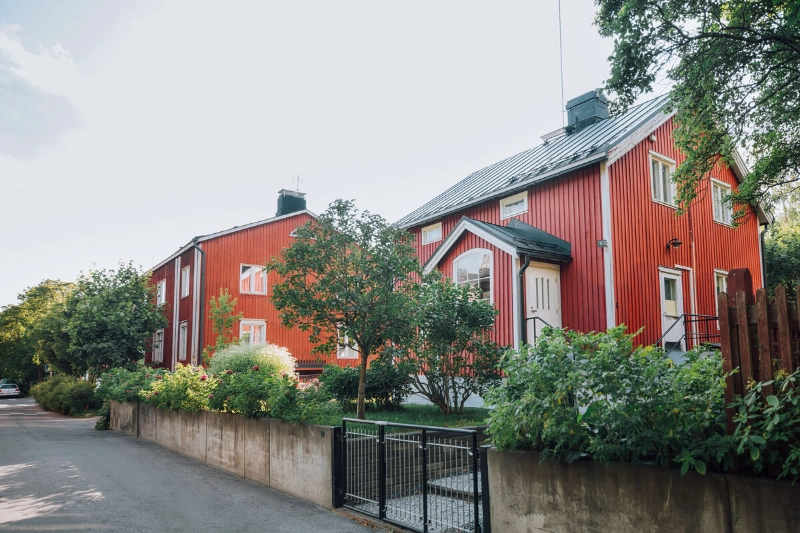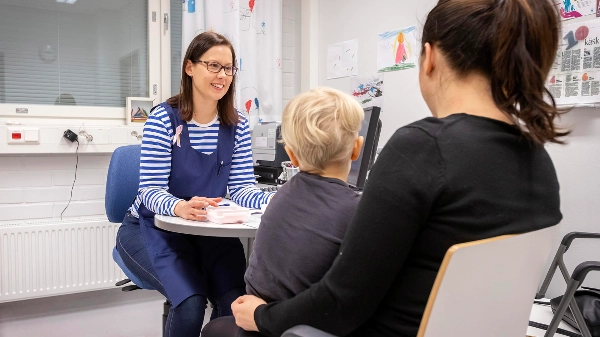Finland is one of the world’s safest countries and income differences here are relatively low. So whether you choose to live in Finland’s cities, suburbs, or countryside, you’re sure to find a space to suit your needs and budget.
Finland’s metropolitan area (around the capital, Helsinki) is the country’s most expensive place to live. To help you get a better understanding of what this means, we’ll cover average housing costs in the capital region versus national averages a bit further down in this article.
As for space, the average person in Finland lives in a detached house of around 80 square metres. In Helsinki, though, most people reside in apartment buildings where living space is a bit more compact: around 60 square metres.
Of course, determining where to live isn’t just about costs and square footage – things like access to services and green space, commuting distance, and family needs are also extremely important. Here are some tips to help you find a place that feels like home.
Housing

Mikko Törmänen / Keksi Agency
Find a place that feels like home with these helpful tips.
Finding a place to live is a big decision – especially when you’re moving to a new country. You probably have many questions, from “Where should I live?” to “Should I buy or rent?” While these choices are ultimately personal, here are some things you should know about housing in Finland.

Krediter: Jussi Hellsten / Helsinki Partners
Even in Finland’s big cities, neighborhoods are full of cosy backyards with space for family activities.

Krediter: Jenna Pietikäinen / Helsinki Partners
Newer apartments come with modern conveniences and bright, airy interiors – you know what to expect when looking for a home.
Renting a place
How much is rent in Finland?
The national average for monthly rent per square metre is approximately 13 euros. In the metropolitan region, though, average rents cost around 20 euros per square metre.
Renting is a great choice if you’re moving to Finland from abroad. You’ll have plenty of options – from spacious homes in the countryside to modern apartments in the cities – as well as the freedom to live alone, with your family, or with roommates.
While rental homes are often unit blocks of flats, detached homes or units in terraced houses are also available. Typically, spaces are rented out by rental companies or individual people. Cities, foundations, parishes, associations, insurance companies, and banks also offer rentals.
In Finnish, rentals are called vuokra-asunnot. Try doing an online search for this phrase to find services that aggregate rentals in one place – commonly used services are for example Oikotie and Etuovi.com. You can also add the name of the city for more precise results. And remember: while some sites do offer an English-language interface, you can always use your device’s translate function. Another tip is to ask your employer for advice, as some offer company housing. You can also reach out to online communities for help – social media sites like Facebook often have groups for expats.
Finally, keep in mind that you’ll typically need to pay a deposit of one to three months’ rent to secure a lease. You can find more information on the rental process on the Finnish Tenant’s Association’s website.
Buying your own home
How to buy home in Finland?
In Finland, people typically buy two types of homes: apartments in housing co-operatives or real estate.
If you buy a flat in an apartment building, you will typically become a shareholder in a housing co-operative (or asunto-osakeyhtiö in Finnish). Many factors go into home prices in urban areas – from location and lot size to age and condition. In 2020 the average cost for an old apartment building per square metre was around 4700 euros in Helsinki, 3550 euros in Espoo and 2140 euros in Turku. Prices are continuously changing but these figures give you an idea what to expect.
In this type of arrangement, you’ll split general costs with other shareholders through a monthly maintenance fee that is used to cover things like garbage collection and repairs. The national average monthly maintenance fee in 2020 was around 4,40 euros per square metre.
In suburban or rural areas, on the other hand, you’ll typically purchase “real estate,” or a full-ownership property, such as a detached house with a private yard. If you choose to buy real estate, you will be responsible for any and all costs associated with it.
Think you’re ready to start the buying process? First, contact an English-speaking local real estate agent. And remember: if you’re from outside of the EU or EEA countries, you’ll need to secure a permit to buy property.

Krediter: Julia Kivelä / Visit Finland
Half of Finns live in detached homes – often in charming wooden dwellings like these.
Other living costs
What is the cost of living in Finland?
Your cost of living will vary depending on your family’s situation; however, here are some things you can expect to pay monthly:
Home insurance – Most landlords require you to purchase home insurance as part of your rental agreement. Factors like your home’s size, age, and level of coverage all impact the price of that insurance. Even if you choose to buy your own place, purchasing insurance is highly recommended.
Electricity – Finnish electricity companies offer two types of contracts: fixed-fee or hourly-use (which is based on the hourly market price). If you rent, electricity is usually an added cost on top of your monthly rent.
Water – If you live in an apartment building, expect to pay around 20 euros per inhabitant for water monthly. And whether you rent or own the apartment, water is typically an added cost on top of your rent or share-holder maintenance fee.
Internet – Things like your home’s location, service type, and connection speed will affect the price you pay for internet service. Typically, a high-speed connection in an urban area costs approximately 20-30 euros per month. Some companies include internet service as part of their benefits, so be sure to ask your potential employer about this.
You might also want to know


.jpg)

.jpg)